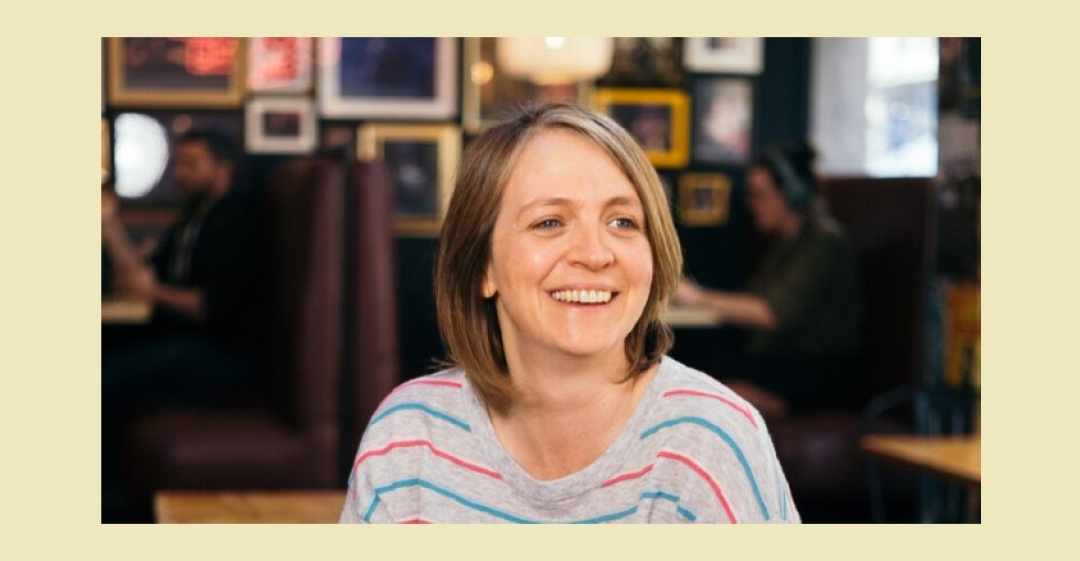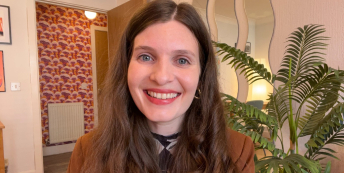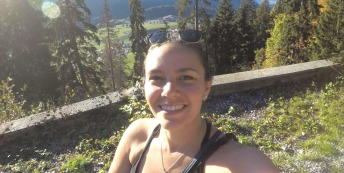“I couldn't explain what I did without someone falling asleep.”

What work were you doing previously?
I worked at a family-owned corporate media company for 15 years in finance.
What are you doing now?
I'm the Head of Finance at Soho Theatre.
How did you feel in your work before you decided to make the change?
It was very comfortable.
There were lots of people working there who'd been there for most of their working lives. During my time there I worked for the same boss who was a really nice guy, but I was feeling uninspired. I'd topped out and there was nowhere for me to go in the organisation.
And when people asked me what I did for a living I couldn't tell them, partly because I couldn't really explain what it was that I did without someone falling asleep, but also because I felt a bit awkward and embarrassed about what I did.
Why did you change?
I'd always intended to leave finance so I never bothered to get my accountancy qualification.
But I kept earning more money, getting pay rises, so I stayed longer than I’d thought.
I realised that weirdly I thought the only way I'd be able to leave finance would be to qualify as an accountant, so I’d have that as a fall back position.
I got my accountancy qualification, then after being qualified, I was fumbling around trying to figure out what it was I wanted to do next.
I wanted out of my job, I had a lot of energy and passion to put somewhere. I just needed some help to be able to do that.
When was the moment you decided to make the change?
Prior to starting the shift process, I’d dipped into Careershifters by reading the success stories and joining the mailing list.
Then the pandemic came. I was sitting in my kitchen, I couldn't go anywhere, and I didn't have a lot on at work.
I just wanted some instructions on how to go about finding work that I'd love to do. I saw the Career Change Launch Pad and thought that the time was right for me to go for it.
Are you happy with the change?
Yes.
I can't believe I work at Soho Theatre, and the people are brilliant.
I become motivated and animated when I talk about what I do now, and I get into fun conversations about it.
I'm a huge stand up comedy fan and that makes up the majority of the work that we do. It’s like being a football fan and going to work for Manchester United. I'm in the greatest venue for stand up comedy in the world, so just being able to work there is amazing.
Longer term I want to move away from finance, at some point I'll be looking to make the next shift into more of an executive role.
Within a few weeks of working at the theatre I looked across the office and said 'I'd like to run this place one day, and even if I don't I'm going to have fun trying'. That’s been my motto ever since.
How did you go about making the shift?
I went to comedy events a long time ago before I had kids.
I thought it might be nice to work in comedy but I didn't know in what capacity. I put the feelers out to my old comedy contacts and asked them who I could speak to and they gave me some leads to approach.
It was during the pandemic so everyone was on video calls. People were so generous with their time and I met some really interesting people.
I spoke to comedians and producers. A producer said to me 'have you thought about becoming an agent, because you care about the artists?'.
I went and spoke to three different agents in different sized organisations, and by the third conversation I knew it wasn't for me. But it was great to know that before I’d invested any time or money into that path.
I'd got to a point where I thought it was producing that I'd like to go into. I threw a load of money at a course to become a producer, and while it wasn't the best use of the money I read a book during the course that said 'just get any job in theatre' as a way in.
I applied for every finance job I could find in all kinds of theatres, including those that were junior and less pay than what I was used to, but I thought I'd just put my applications in. I wanted to get in front of people and start practicing interviews, having not done them for so long.
When I applied to Soho Theatre I told them that I love comedy, I love Soho Theatre, and shared my favourite moments from being at the theatre as an audience member.
By the time I got to the actual interview, I was like a mega-fan, able to walk around the building and say 'I saw this person on this stage' so they couldn't turn me down.
While the role was a step down from my old one in terms of seniority and pay, I knew they were probably going to promote me if I could do a good job, and that's what happened. Within six months I went from being a finance manager to being the finance director.
How did you handle your finances to make your shift possible?
I created a bit of a cushion for myself.
I made the assumption that if I was going to make a shift, there'd be a possibility I'd have to take a pay cut. So I sat down and worked out how much I actually need financially, what would be enough for me to be able to sleep at night and not worry.
I decided I’d need four months of take-home, which would give me four months grace of not earning and then I could go temp somewhere if needed, using the accountancy qualification.
And then I just cut back on lifestyle things.
I was worried at first about the salary drop. When I accepted the job, I'd managed to negotiate less time so I could freelance as well to make up for the drop in pay.
I'm not earning as much as I was in my old job, but I earn enough, and I know there’s the potential to earn more.
What was the most difficult thing about changing?
Before I made the move, right at the beginning of the Launch Pad, the challenge was trying to put presumptions about work to the side.
It was also challenging to ignore the nagging voice that says 'why don't I know what my next job is yet, why don't I have an exact job title to aim for'. I was impatient and found that quite difficult.
But I loved the conversations that I was having so much that I just kept going, enjoyed the process, and trusted it would come together.
Often the people I spoke to would say 'I think what you're doing is fantastic, and what a great way to find out about what you want to do next' which was really encouraging.
What help did you get?
I have to say that it was the Launch Pad process, facilitators and speakers that were 95% of the help.
The process then put me in front of people, my network’s network, who were so interested and encouraging.
I tried to only talk to those in my network who were positive about change. If anyone was cautious or negative, I’d change the subject!
What have you learnt in the process?
To listen to my gut feelings and be more aware of what I naturally like and don’t like, using that to guide me forward.
The shift was quite an iterative process in that way.
What would you advise others to do in the same situation?
If work means a lot to you, it probably means that you have a lot of yourself to give.
If you can find a way to communicate your values with passion and energy, people will automatically be attracted to you and want to hear more. It’s infectious.
Find that spark and find the people (not jobs!) that want to be ignited by you (and you them).
Gemma took part in our Career Change Launch Pad. If you're ready to join a group of bright, motivated career changers on a structured programme to help you find more fulfilling work, you can find out more here.
What lessons could you take from Gemma's story to use in your own career change? Let us know in the comments below.



